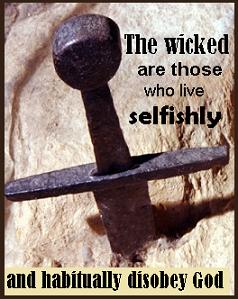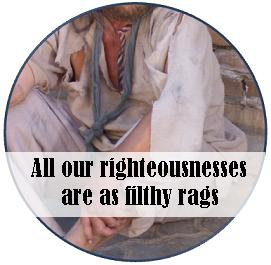Matthew 5:20 – “…Unless Your Righteousness Exceeds…”
Matthew 5:20 – “…Unless Your Righteousness Exceeds…”
The Sermon on the mount is one of the most challenging passages in the whole of Scripture. Jesus was speaking to His disciples in front of a large multitude of people and was calling them to live lives worthy of the name of Christian.

In His address He said “except your righteousness exceeds the righteousness of the scribes and Pharisees, you will by no means enter the kingdom of heaven” (Mat 5:20). Many people believe that when Jesus said this He was referring to the imputed justifying righteousness which believers receive through faith in Christ.
However, the remainder of the sermon will not allow us to adopt that interpretation, for He went on to say many things which show us that He was referring to our daily conduct in the world. He was not giving a discourse on the doctrine of justification by faith alone, but rather explaining the type and standard of lifestyle He expects from His people.
Jesus was contrasting the type of righteousness which the ‘churchmen’ of His day were demanding from their followers, with true righteousness. Jesus showed that it was not so much an outward conforming to the habit and tradition of a church culture, as to the inward and spiritual discipline of the heart.
The control of anger and bad language and the reconciling of Christian brothers has first to be dealt with even before we present ourselves in God’s house, “first be reconciled to your brother and then come and offer your gift” (Mat 5:24). It is not only the actual act of adultery but the secret lusting of it in our hearts that needs to be crucified. Such directions reveal the concern Jesus had for the practical walk and daily life of the believer.
An Imperfect Righteousness which is Commendable to God⤒🔗
This leads us to consider the distinction between absolute perfect righteousness (justifying righteousness) and the righteousness which Scripture sometimes calls ‘upright’ and even ‘perfect’. No one, but no one, lives a perfect sinless life. All have sinned and come short of God’s glory.
Yet, God also called some people ‘perfect’ and ‘righteous’ and ‘upright’. Abel “obtained witness that he was righteous” (Heb 11:4), Noah was “perfect in his generation” (Gen 6:9), Job was “blameless and upright” (Job 1:1), Ezekiel tells of “a righteous man (who) turns away from his righteousness” (Ezek 18:24). Zacharias and Elizabeth were “both righteous before God, walking in all the commandments and ordinances of the Lord blameless” (Luke 1:6). Finally Peter says “in every nation whoever fears Him and works righteousness is accepted by Him” (Acts 10:35).
So the Bible does call some people righteous. In fact throughout Scripture there is a regular contrast made between the righteous and the wicked. Paul teaches that there will be eternal life to those who continually do good but to the self-seeking and those who do not obey the truth, there will be indignation and wrath (Rom 2:7-10).
The righteous are those who habitually serve God, albeit imperfectly. The tenor and intent of their life is oriented to pleasing God as best they can, even although they fail and sin often. The course of their life is toward God. The wicked are those who live selfishly and habitually disobey God, not considering His law or His Word.
As John Piper points out, many speak disparagingly of all human righteousness as if nothing at all in sanctified human effort pleased God and that He only saw everything we do as horrible and ugly. Such people cite (Isaiah 64:6) “all our righteousnesses are as filthy rags”, something which is very true regarding our justification, but hardly true regarding Zacharias and Elizabeth’s lives when it was recorded they “walked blamelessly” before the Lord (Luke 1:6).

There is a righteousness that is not filthy rags. There is a righteous way of life that is pleasing to God. Piper illustrates “When my sons do what I tell them to do – I do not call their obedience ‘filthy rags’, even if it is not perfect. Neither does God. All the more because He is “working in us that which is well pleasing in His sight” (Heb 13:21). He does not call His own Spirit-wrought fruit ‘filthy rags’.
This should be a great encouragement to us that our Father in heaven is not impossible to please. “He knows our frame; He remembers that we are dust” (Ps 103:14).
There can be a tendency for us to wallow in the mire of our own ruination by going beyond what Scripture says. Redemption does redeem and equip us to serve God. Paul prayed that God would “do exceedingly abundantly above all that we ask or think, according to the power that works within us” (Eph 3:20). Paul obviously believed there was a power at work in the lives of Christians which could bring glory to God. There is a grace that teaches us how to live soberly and righteously in this present evil world (Titus 2:11).
So when Jesus said that we must have a righteousness that exceeds the righteousness of the scribes and Pharisees, He was not referring to justifying righteousness but to our daily walk with God.

Add new comment